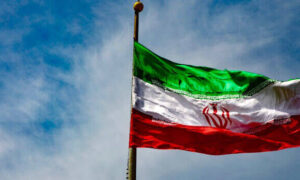The United States on Friday blacklisted an Iranian oil tanker, the Adrian Darya 1, which had been bouncing around from one destination to another in the Mediterranean Sea for weeks with a massive cargo of crude, and its captain, Akhilesh Kumar, who was identified as an Indian national.
This was probably the first instance of an Indian national sanctioned by the United States in connection with its ongoing tensions with Iran. But not much else could be ascertained about Kumar other than his date and place of birth as stated by US treasury in the announcement — he was born in Patna, Bihar.
An Indian shipping professional with years of experience captaining cargo ships said, by way of explaining the situation generically, said, “It is definitely risky being on vessels breaking laws. Sometimes people unknowingly find themselves on these. Others take their chances, I suppose.”
It could not be ascertained immediately if Kumar was on that vessel “unknowingly” or he was taking his chances.
The US treasury said the ship, which was earlier called the Grace 1, was carrying 2.1 million barrels of crude whose sale was ultimately to benefit the Iranian Islamic Revolutionary Guards Corps-Quds Force (IRGC-QF), “to fund the regime’s malign activities and propagate terrorism”.
Both the ship and Kumar were designated under a US order that “targets terrorists and those providing support to terrorism or acts of terrorism”. Sanctioned individuals and entities stand to have their assets blocked in US jurisdiction and Americans are prohibited from dealing with them.
“Vessels like the Adrian Darya 1 enable the IRGC-QF to ship and transfer large volumes of oil, which they attempt to mask and sell illicitly to fund the regime’s malign activities and propagate terrorism,” said Sigal Mandelker, head of terrorism and financial intelligence at US treasury.
Formerly called the Grace 1, this ship was seized by the British in Gibraltar in July on suspicion it was carrying crude for meant for Syria in violation of European Union sanctions, in a development that had received widespread media attentions coming as it did amidst escalating US-Iran tensions.
The ship was released mid-August on Iranian assurance to a Gibraltar court that the crude cargo, valued at more than $140 million was not headed for Syria.
The ship has since become a problem no country wants to own. It has bounced around destinations without docking anywhere yet, raising speculation about a ship-to-ship transfer mid-sea. Iran has said the cargo has been sold and its owner, who has not been identified, will determine the destination.
It was supposed to have been heading for Turkey at one point, but Ankara dismissed it claiming, first, it was bound for Lebanon, which also denied it was the destination saying it does not import crude and cited the lack of refineries as proof. Turkey on Friday suggested the ship was actually headed for Lebanese waters not a port.




























 WhatsApp us
WhatsApp us